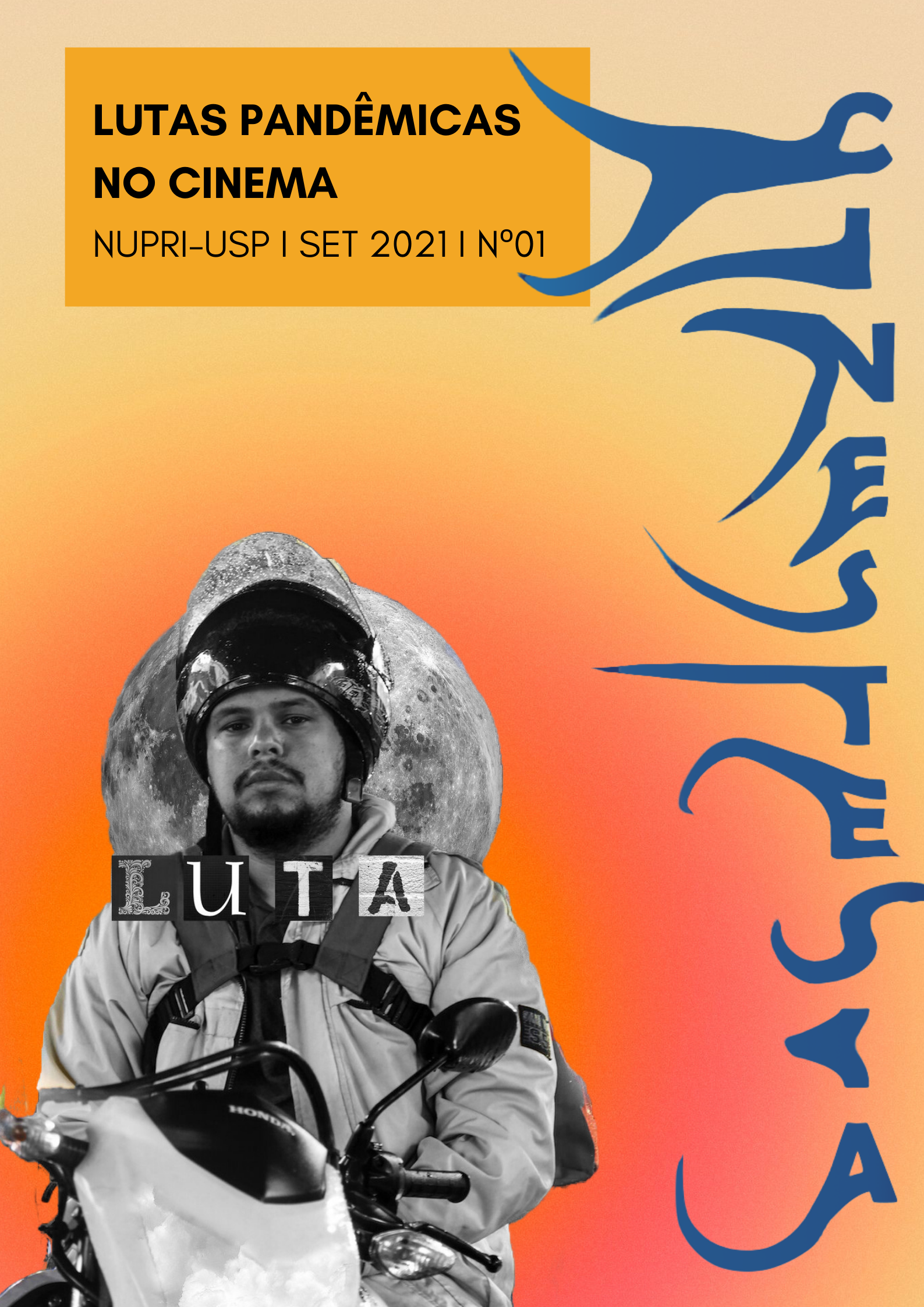Bacurau: a colonial situation?
DOI:
https://doi.org/10.11606/issn.2675-7265.v1i2p92-119Keywords:
Underdevelopment, Cinema Novo, Bacurau, Violence, Contemporaneity.Abstract
The Brazilian cinematographic production – and the theoretical / critical thinking started by it – presents, in recurring way, influxes about the problem of underdevelopment. Cinema Novo's movement is symbolic in this sense for trying to creatively incorporate its own economic and technical precariousness, third world indices, into the cinematographic language of its films, seeking an original diction, that is, independent of foreign repertoires. Other artistic manifestations will also put in perspective the construction of national identity in dialogue with the precariousness discourse (such as tropicalism in music and marginal cinema, for example), and it is in this tone that this article intends to analyze the film Bacurau (2019) , directed by Pernambuco's filmmakers Kleber Mendonça Filho and Juliano Dornelles. To this end, we resort mainly to the study of violence as a product of an aesthetic derived from the Aesthetics of Hunger (Estética da fome), a manifesto by Glauber Rocha to define the ethics and aesthetics of cinema produced in tupiniquins’s lands. In addition, we seek to map historically the film in the field of contemporaneity, identifying elements that are sometimes anachronistic together with the cinematographic tissue of the film. Therefore, we looked at the investigation of the proper aspects of film language (framing, dialogues, camera movements, etc.), as well as the interaction of these elements with studies related to the fields of history and sociology, in order to make dynamic the reading, dialectic, in the sense of discussing art and society.
References
BERNARDET, Jean-Claude. Brasil em tempo de cinema: ensaio sobre o cinema brasileiro de 1958 a 1966. São Paulo: Companhia das letras, 2007.
GOMES, Paulo Emílio Sales. Uma situação colonial?. 1 ed. São Paulo: Companhia das letras, 2016.
MATTOS, Antônio Carlos Gomes de. Publique-se a lenda: a história do western. 1 ed. Rio de Janeiro: Rocco, 2004.
MUNIZ, Durval. A invenção do nordeste e outras artes. 5 ed. São Paulo: Cortez, 2011.
VIEIRA, Marcelo Dídimo Souza. O cangaço no cinema brasileiro. 2007. 418f. Tese de Doutorado – UNICAMP, São Paulo, 2007.
XAVIER, Ismail. Da violência justiceira à violência ressentida. Ilha do desterro, Florianópolis, v. 51, pp. 55-68, Jul./dez. de 2006.
XAVIER, Ismail. John Ford e os heróis da transição no imaginário do western. Novos estudos, São Paulo, v. 100, pp. 171-192, Novembro de 2014.
XAVIER, Ismail. Sertão Mar. 1 ed. São Paulo: Duas cidades; Editora 34, 2019.
Textos consultados em sites
ESCOREL, Eduardo. Bacurau – celebração da barbárie. Piauí. Disponível em: <https://piaui.folha.uol.com.br/bacurau-celebracao-da-barbarie/>. Acesso em: maio. 2020.
MUNIZ, Durval. Bacurau: será mesmo resistência?. Saiba Mais. Disponível em: <https://www.saibamais.jor.br/bacurau-sera-mesmo-resistencia/>. Acesso em: abril. 2020.
ROCHA, Glauber. Eztetyka da fome. Hambre espacio cine experimental. Disponível em: <https://hambrecine.com/2013/09/15/eztetyka-da-fome/>. Acesso em: maio. 2020.
SANTIAGO, Silviano. Grande sertão: crossroads blues. Suplemento Pernambuco. Disponível em: <https://www.suplementopernambuco.com.br/artigos/2505-grande-sert%C3%A3o-crossroads-blues.html>. Acesso em: junho. 2020.
Filmes citados
BACURAU. Direção: Kleber Mendonça Filho e Juliano Dornelles. Produção de Emilie Lesclaux. Pernambuco: Cinemascópio, sbs, 2019. 1 DVD (132 min.).
DEUS e o diabo na terra do sol. Direção: Glauber Rocha. Rio de Janeiro: Copacabana filmes, 1964. 1 DVD (118 min.).
HALLOWEN. Direção: John Carpenter. Califórnia: Compass International Pictures, 1978. 1 DVD (112 min.).
O DRAGÃO da maldade contra o santo guerreiro. Direção: Glauber Rocha. Rio de Janeiro: Mapa Filmes, 1969. 1 DVD (95 min.).
Downloads
Published
Issue
Section
License
Copyright (c) 2021 Rafael Ferreira Passos

This work is licensed under a Creative Commons Attribution-ShareAlike 4.0 International License.


